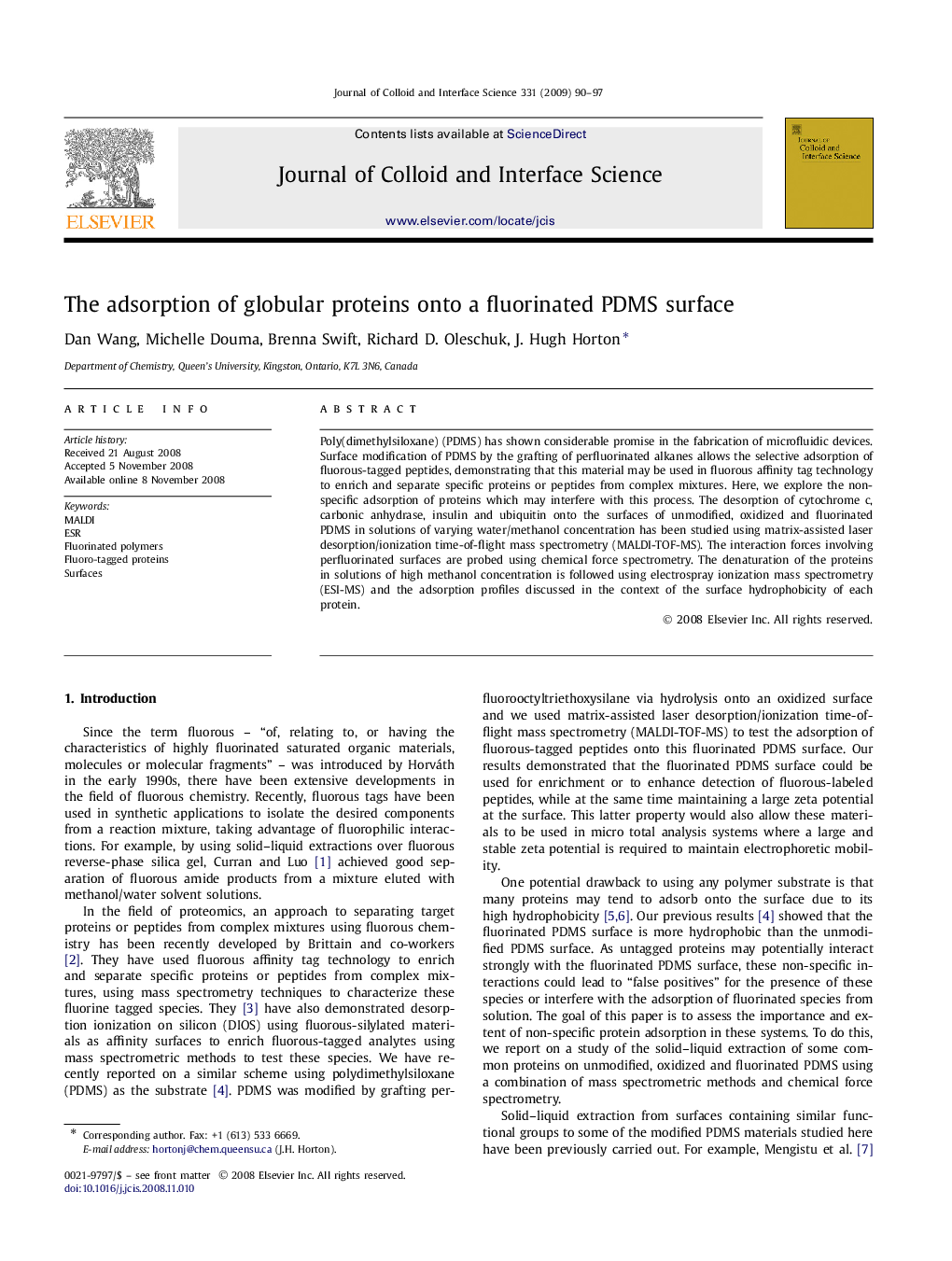| Article ID | Journal | Published Year | Pages | File Type |
|---|---|---|---|---|
| 611132 | Journal of Colloid and Interface Science | 2009 | 8 Pages |
Poly(dimethylsiloxane) (PDMS) has shown considerable promise in the fabrication of microfluidic devices. Surface modification of PDMS by the grafting of perfluorinated alkanes allows the selective adsorption of fluorous-tagged peptides, demonstrating that this material may be used in fluorous affinity tag technology to enrich and separate specific proteins or peptides from complex mixtures. Here, we explore the non-specific adsorption of proteins which may interfere with this process. The desorption of cytochrome c, carbonic anhydrase, insulin and ubiquitin onto the surfaces of unmodified, oxidized and fluorinated PDMS in solutions of varying water/methanol concentration has been studied using matrix-assisted laser desorption/ionization time-of-flight mass spectrometry (MALDI-TOF-MS). The interaction forces involving perfluorinated surfaces are probed using chemical force spectrometry. The denaturation of the proteins in solutions of high methanol concentration is followed using electrospray ionization mass spectrometry (ESI-MS) and the adsorption profiles discussed in the context of the surface hydrophobicity of each protein.
Graphical abstractThe adsorption of cytochrome c, carbonic anhydrase, insulin and ubiquitin onto the surfaces of unmodified, oxidized and fluorinated PDMS in solutions of varying water/methanol concentration has been studied using matrix-assisted laser desorption/ionization time-of-flight mass spectrometry (MALDI-TOF-MS). The interaction forces involving perfluorinated surfaces are probed using chemical force spectrometry.Figure optionsDownload full-size imageDownload as PowerPoint slide
